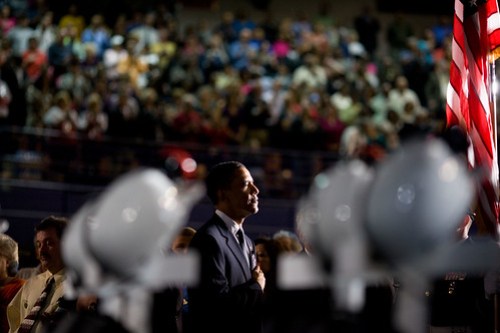
[digg-reddit-me]Like a lingering odor, the failure of Hillarycare in 1993 is hanging over this perilous moment in Obama’s presidency. It’s true that Clinton’s health care plan never got this far legislatively. By presenting a complicated plan to Congress and trying to bully it through, the Clinton administration made a huge tactical blunder. But it is clear that both sides sense that this is the moment when health care reform could be derailed. While the Democrats and Obama have long been planning on pushing through health care, what is going on now is pure political blood sport. This is a zero sum game. This is a Democratic attempt to prove that they can accomplish something that is popular and helps the middle class and which they have been trying for sixty years with only moderate success to enact. This is the Republican attempt to protect the status quo and to slingshot their way back to power as they did in 1994.
Bill Kristol has said that this is the week to stop health care reform – to not worry about being obstructionist or trying to appear constructive:
There will be a tendency to want to let the Democrats’ plans sink of their own weight, to emphasize that the critics have been pushing sound reform ideas all along and suggest it’s not too late for a bipartisan compromise over the next couple of weeks or months.
My advice, for what it’s worth: Resist the temptation. This is no time to pull punches. Go for the kill.
Beneath the veneer of policy disagreement that Kristol is using, it’s clear he is advocating pure obstructionism. He senses opportunity. Which is why he and many other Republicans are now all repeating the same talking points: Obama’s health care reform is an “experiment” with your health; it will ration health care; you will lose the insurance you have now; the government will impose itself between you and your doctor; socialism! These rather familiar refrains are being thrown about for one purpose – and it has little to do with health care.
As Senator Jim DeMint rather infamously declared in a secret call to anti-reform advocates:
If we’re able to stop Obama on this it will be his Waterloo. It will break him.
Newt Gingrich echoed this point:
This could be the bill that drags his whole presidency down and they look back on it and suddenly the whole thing is unraveled.
And the Democrats seem to agree – as the former Organizing for America sent out DeMint’s statements to rally supporters – and Mark Kleiman, a Democratic blogger said, “This bill is make or break for the Democratic Party.”
The Republicans are trying to break the Obama presidency – as they did Clinton’s. Clinton came back, but he never had the same political support.
Meanwhile, moderates play an interesting role in this political blood sport. They decry both sides for being mean – and suggest everyone get along. They talk about bipartisanship, suggest the Democrats move slowly, and they feel queasy at the prospect that the Democrats – by actually governing and doing what they promised they would do – might be overreaching. Matt Yglesias ably responded to this point:
It’s not as if what happened in 1994 was the congress passed Bill Clinton’s big health reform package, then the public didn’t like it, then in revulsion they turned against Democrats. Nor did congress pass the proposed BTU tax, then the public didn’t like it, and then in revulsion they turned against Democrats. The noteworthy thing about the first two years of the Clinton administration was the lack of ambitious progressive programs put in place. And you could say the same about Jimmy Carter. Whatever it is people reacted against in 1978, 1980, and 1994 it wasn’t actually existing left-wing governance.
Ezra Klein – on the same theme – explained the lesson one of the key architect’s of Obama’s strategy learned from 1993:
Emanuel has carried that lesson with him into the Obama White House. “The only thing that’s not negotiable is success,” he likes to say. The worst outcome for the party — in part because it’s the worst outcome for its marginal members – is defeat. Voters punish defeat.
If the Democrats succeed – as Bill Kristol explained in 1993:
It will revive the reputation of the party that spends and regulates, the Democrats, as the generous protector of middle-class interests. And it will at the same time strike a punishing blow against Republican claims to defend the middle-class by restraining the growth of government.
Despite this moment of peril, Obama’s strategy to get health care through is still intact. His administration has learned the lessons of 1993- 1994 well – perhaps too well.
But make no mistake as you see the charges thrown about by both sides in these next few weeks. This battle is no longer about policy for either the White House or the Republican Party. (Though the right policies will be essential to its long-term success.) Right now this is political blood sport – it is about whether or not the Obama administration will be broken by obstructionist elements. The short-term success of the administration will be determined by whether or not they succeed in the next few weeks to pass something substantial; their long-term success will depend on the policies they are able to include.
[Image not subject to copyright.]




